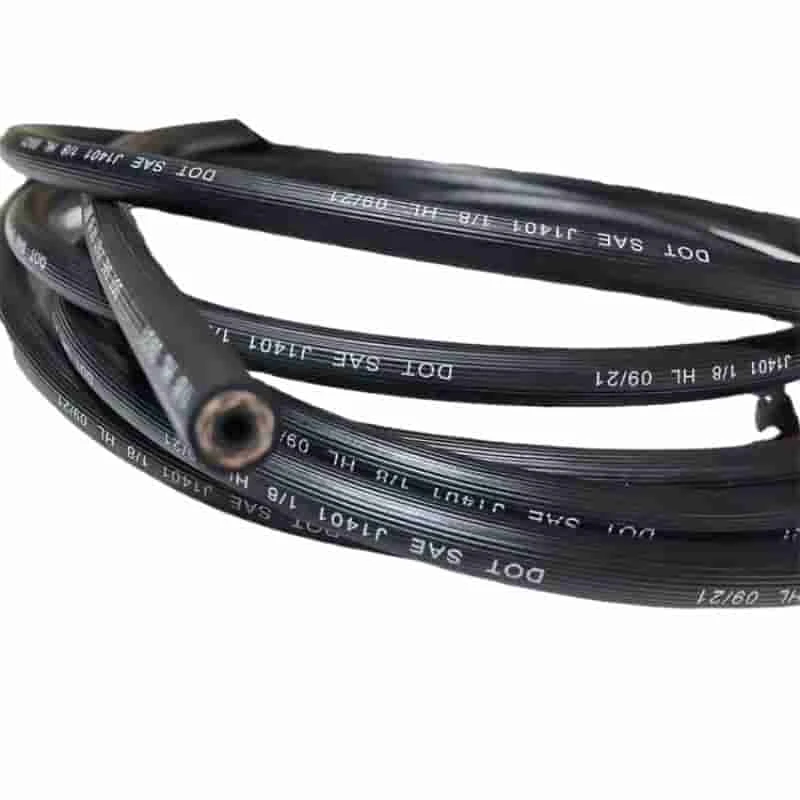Understanding the Importance of Fuel Line Hoses in Automotive Systems and Applications
ធ្នូ . 02, 2024 03:32 Back to list
Understanding the Importance of Fuel Line Hoses in Automotive Systems and Applications
Understanding Fuel Line Hoses Importance, Types, and Maintenance
Fuel line hoses are critical components in any vehicle's fuel system, responsible for transporting fuel from the tank to the engine. The durability, flexibility, and functionality of these hoses have a direct impact on vehicle performance and safety. In this article, we will explore the importance of fuel line hoses, the different types available, and essential maintenance tips to ensure their optimal performance.
The Importance of Fuel Line Hoses
Fuel line hoses perform several vital functions. First and foremost, they transport fuel under pressure, which is essential for the efficient operation of the engine. If these hoses fail, it can lead to fuel leaks, resulting in not only poor engine performance but also safety hazards such as fires or explosions. Therefore, ensuring that the fuel line hoses are in good condition is crucial for any vehicle owner.
In addition to transporting fuel, these hoses must also withstand various environmental factors, including extreme temperatures and exposure to chemicals. Therefore, fuel line hoses are engineered to be resilient and capable of handling different fuel types, including gasoline, diesel, and even biofuels. Their ability to maintain structural integrity under pressure and adverse conditions makes them an integral part of the fuel system.
Types of Fuel Line Hoses
There are several types of fuel line hoses available in the market, each designed for specific applications. The most common types include
1. Rubber Fuel Hose This is the most widely used type of fuel line hose. It is flexible, resistant to abrasions, and can handle different fuel types. However, rubber hoses can deteriorate over time due to exposure to heat and chemicals.
2. Nylon Fuel Hose Known for its durability and resistance to heat, nylon fuel hoses are often used in performance applications. They are less flexible than rubber hoses but offer superior strength.
3. PTFE (Polytetrafluoroethylene) Hose This type of hose is known for its chemical resistance and ability to handle a wide range of temperatures. PTFE hoses are often used in specialized applications where high performance is required.
fuel line hose

4. Stainless Steel Braided Hose Typically used in high-performance vehicles, these hoses combine a PTFE lining with a stainless steel braid for added strength and durability. They are resistant to heat and pressure, making them ideal for rigorous applications.
Maintenance Tips
To ensure the longevity and efficiency of fuel line hoses, regular maintenance is essential. Here are some key maintenance tips
1. Regular Inspections Periodically inspect the fuel line hoses for any signs of wear, cracks, or leaks. Pay special attention to areas where the hoses bend or connect to fittings, as these are often points of failure.
2. Replace When Necessary If you notice any damage during your inspection, it is crucial to replace the affected hoses immediately. Delaying replacements can lead to more significant issues, including fuel leaks or engine failure.
3. Avoid Extreme Conditions Whenever possible, try to avoid exposing fuel line hoses to extreme temperatures or harsh chemicals that could accelerate deterioration. Parking in shaded areas or using protective covers can help mitigate these risks.
4. Professional Service Consider seeking professional assistance for servicing your fuel line hoses. Mechanics can provide a thorough inspection and replace hoses as needed, ensuring your vehicle operates safely and efficiently.
Conclusion
In conclusion, fuel line hoses play a critical role in the safe and efficient operation of vehicles. Understanding their importance, the different types available, and how to maintain them can save vehicle owners from costly repairs and safety hazards. Regular inspections and prompt replacements are vital to ensuring that these hoses function correctly, ultimately contributing to the overall reliability and performance of your vehicle. By prioritizing fuel line hose maintenance, you can drive with confidence, knowing that your vehicle's fuel system is in top condition.
